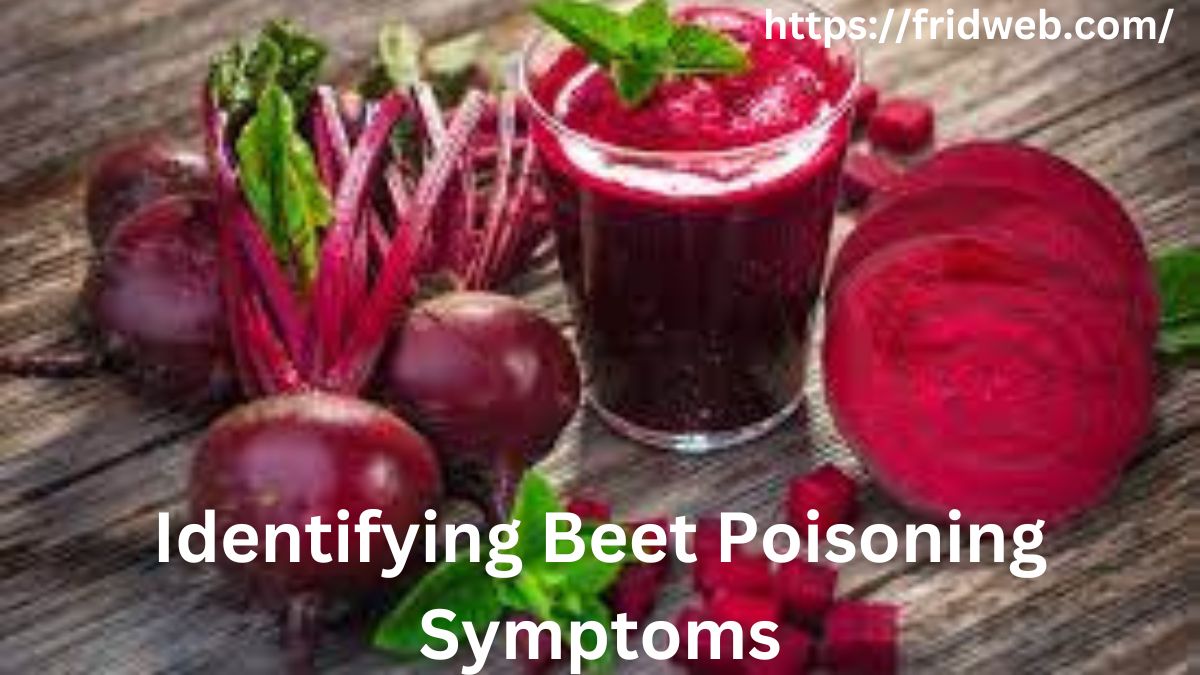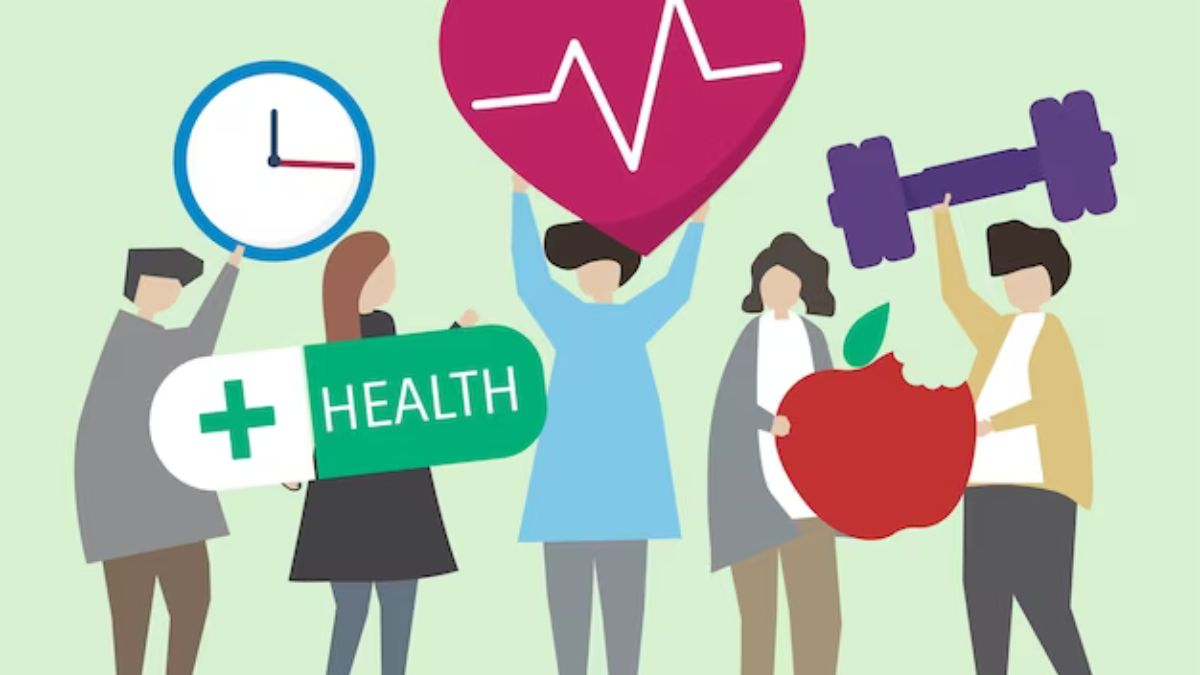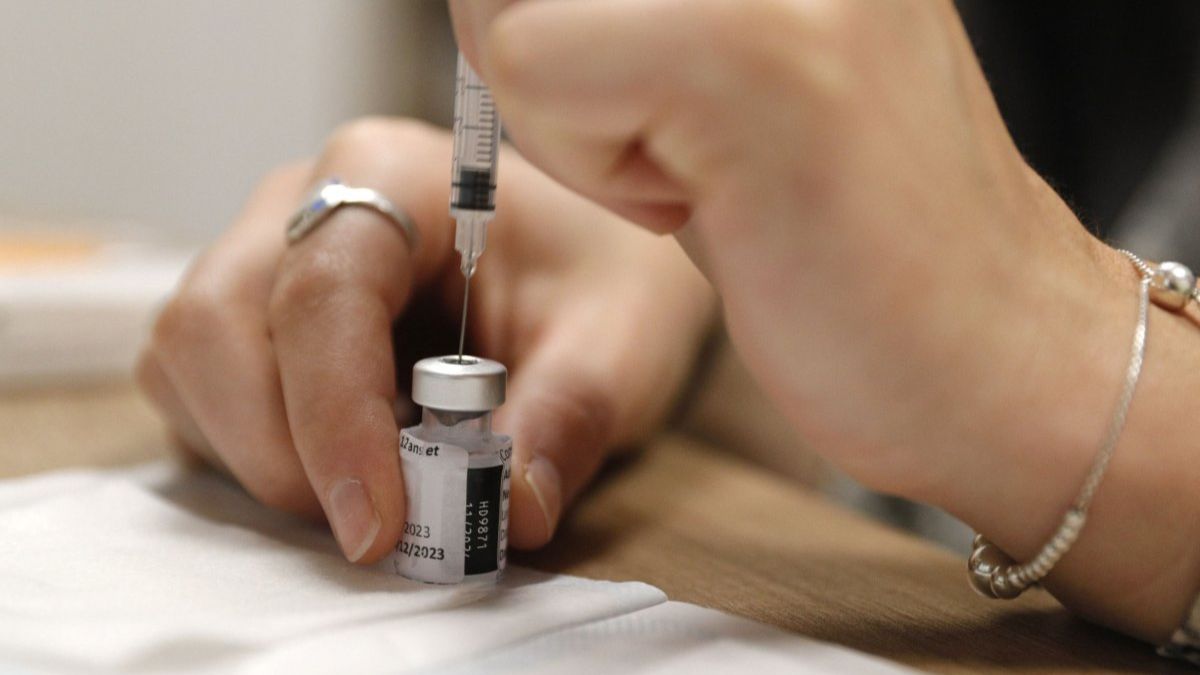Health
Identifying Beet Poisoning Symptoms: A Comprehensive Guide

Beet Poisoning Symptoms: With their vivid colours and a host of health advantages, beets are becoming more and more well-liked as a wholesome addition to our meals. However, beets can have negative consequences if handled or eaten improperly, just like any other food. We will look at the signs of beetroot poisoning, and its causes, and provide you with crucial information to help you spot and handle probable beetroot poisoning situations.
Understanding Beet Poisoning
When someone consumes damaged or tainted beets, a condition known as beet poisoning, or beet toxicity, ensues. This can occur for a number of reasons, including incorrect storage, cross-contamination, or eating beets that have come into contact with pesticides or other dangerous substances. Even though beetroot poisoning is very uncommon, it’s vital to be aware of the signs so you can act appropriately if necessary.
Common Symptoms of Beet Poisoning
An intestinal disorder:
Nausea Vomiting
spasms or discomfort in the abdomen
Allergic Reactions to Diarrhoea:
itching or hives
Itching or swelling, particularly in the face, lips, or throat
breathing issues or wheezing
Anaphylaxis is a serious allergic response that can be fatal.
Nervous System Symptoms:
Headache
Unsteadiness or faintness
confusion or fuzziness
seizures (sometimes)
Anaemia hemolytic:
weakness or weariness
Jaundice (a skin and eye yellowing condition) or pale skin
Shortness of breath or an accelerated heartbeat
dark faeces
It’s important to keep in mind that symptoms might change based on the sensitivity of the person, the quantity of beetroot taken, and the particular contaminant involved. It is best to get medical help right away if you suffer any of these after eating beets.
Immediate Actions to Take
It is critical to take action right away if you suspect beetroot poisoning. Here are some quick actions to think about:
For assistance, speak to emergency services or a medical expert.
Give specific details on the signs and symptoms, the alleged source of contamination, and the number of beets ingested.
Avoid making someone throw up unless a doctor tells you to.
Dehydration can result from vomiting and diarrhoea, so be sure you drink enough of water.
Preventing Beet Poisoning
Prevention is always preferable to treatment. Follow these precautions to reduce the risk of beetroot poisoning:
Make sure the beets you buy are high-quality, fresh, and from reputable sources.
Before preparing or eating beets, carefully wash them with clean water and a vegetable brush.
Beets should be kept in a cool, dry location to avoid rotting.
Maintain good food hygiene by keeping raw beets separate from other foods and cleaning cutting surfaces and equipment after each use.
Conclusion
Even though beetroot poisoning is rather rare, it is important to recognise its signs and treat it appropriately right once. You may protect yourself and your loved ones from potential hazards by being aware of the symptoms of beetroot poisoning and taking preventive steps. Remember to seek medical advice if you have any unsettling symptoms after eating beets. Be aware, be careful, and appropriately take use of beets’ nutritional advantages.
Health
119 Health and Wellness

The pursuit of a healthy and happy life has become more important than ever in today’s fast-paced society. This article will examine “119 health and wellness,” a comprehensive strategy that places equal weight on one’s mental, physical, and emotional health. We will examine the fundamentals of 119 health and wellbeing, from diet and exercise to meditation and self-care.
Understanding 119 Health and Wellness
What is 119 Health and Wellness?
The 119 Health and Wellness Method is an all-encompassing strategy for improving one’s health and happiness. These components acknowledge the interdependence of our physical, mental, and emotional well-being.
The concept of holistic health and wellbeing is central to the 119 wellness movement. Health is defined as not only the absence of sickness but also the presence of flourishing in the areas of one’s physical, mental, and emotional selves as well.
The 119 Elements of Health and Wellness
Nutrition: Fueling Your Body
Good health begins with a healthy diet. Proper nutrition involves feeding your body the nutrients it needs to perform at its best.
Physical Activity: Move Your Body
Physical fitness and general health depend on regular exercise. It aids in keeping the weight down, is good for the heart, and lifts the spirits.
Mental Health: The Power of the Mind
The state of one’s mind is just as important as one’s body. Seeking assistance when you need it, as well as practicing mindfulness and stress management, are stressed in chapter 119.
Emotional Well-being: Handling Emotions
Being emotionally healthy means being in control of your feelings. Meditation and journaling are two methods that might be quite useful in this area.
Sleep: The Importance of Rest
Restorative and rejuvenating sleep is essential. A regular sleep routine is recommended by 119 health and wellnes experts.
Hydration: Drink Up
Insufficient water intake is a common problem. It’s vital to several processes in the body, including digestion and maintaining a steady internal temperature.
Stress Management: Keep Calm
The effects of prolonged stress on the body may be devastating. The ability to cope with stress is crucial to good health.
Relationships: Building Connections
Positive interpersonal interactions are an integral part of a healthy lifestyle. They help people feel better emotionally and mentally.
Self-Care: Taking Time for Yourself
Spa days walks in the park, and engaging in other forms of self-care are all important for maintaining a healthy mind and spirit.
Goal Setting: Aiming for Success
By focusing on progress rather than perfection, goal setting may increase drive and fulfillment, allowing you to live more on purpose.
Mindful Eating: Savor Your Meals
Eating mindfully helps you enjoy every mouthful, which is good for your digestive system and your waistline.
Meditation and Mindfulness: Inner Peace
Anxiety and stress can be alleviated via the practice of meditation and mindfulness.
Exercise Variety: Keep It Fun
Changing up your workout regimen from time to time helps keep things fresh and prevent boredom.
Digital Detox: Unplug
Taking a break from screens has been shown to lower stress and increase the quality of sleep.
Holistic Therapies: Alternative Approaches
Holistic therapies like acupuncture and chiropractic therapy are worth investigating since they can complement standard medical care.
Benefits of Embracing 119 Health and Wellness
Improved physical health, less stress, higher emotional well-being, and more life satisfaction are just a few of the many benefits of prioritizing one’s health and fitness. It’s a guide for living a happier and more productive life.
Conclusion
119 health and Wellness offers a comprehensive strategy for health in a fast-paced society. People may have better, more satisfying lives if they prioritize their physical, mental, and emotional well-being. The key to realizing your maximum potential is adopting the 119 principles of health and fitness.
FAQ’s
1. Is 119 health and wellness a new concept?
The idea of a holistic approach to one’s health and well-being is not new, but it has recently gained popularity.
2. How can I incorporate the 119 elements into my daily life?
Modifying your diet, increasing your exercise, and adopting a more attentive attitude are all good places to start.
3. Can 119 health and wellness help with mental health issues?
The value of mental health is emphasized, and methods for bettering and maintaining it are provided, in Section 119 of the Health and Wellness section.
4. Are there any specific diets recommended for 119 health and wellness?
While there is no universally beneficial diet, eating more natural, unprocessed foods is generally a safe bet.
5. What’s the first step to embracing 119 health and wellness?
Realizing you need to make some adjustments in your life and accepting that holistic health is important are the first steps.
Health
Pfizer Layoffs: Navigating the Corporate Landscape

The massive pharmaceutical company Pfizer recently went through a big corporate reorganisation that resulted in numerous layoffs. This article explores the details of Pfizer’s layoffs, looking at the rationale for the action, the effects it had on workers, and more general trends in the pharmaceutical sector.
Understanding Pfizer Layoffs
The Why and How
Pfizer is not alone in its decision to implement layoffs; rather, it is the outcome of more significant shifts in the economy and business environment. Both industry observers and employees need to understand why the shift is being made.
Impact on Employees
Layoffs affect people’s lives profoundly, even beyond the numbers. This section examines the psychological and occupational fallout for Pfizer employees.
Corporate Restructuring Trends
The Dynamics of Pharmaceutical Industry
The pharmaceutical industry is always changing, and businesses need to change with it. We examine the more general patterns influencing Pfizer’s choices.
Global Economic Factors
There are other external economic forces at play. Analysing the state of the world economy gives Pfizer a complete picture of the difficulties it faces.
Communication Strategies During Layoffs
Transparent Communication
It’s critical to communicate effectively when there are layoffs. We investigate the ways in which transparency can lessen the effects on workers.
Employee Support Programs
Through a variety of initiatives, businesses can offer vital help during uncertain times. The significance of these projects is explored in this section.
Navigating the Job Market After Pfizer Layoffs
Resume Building
After layoffs, finding a job demands a smart strategy. Discover how to create a CV that is both captivating and unique.
Upskilling Opportunities
Acquiring new abilities improves one’s employability. Find ways to improve your skills in a market for jobs that is highly competitive.
Emotional Well-being Amidst Uncertainty
Coping with Job Loss
Losing a job is emotionally draining. People can benefit from practical guidance and coping techniques at this difficult time.
Mental Health Resources
It is essential to prioritise mental wellness. We investigate resources available to support persons dealing with the stress of job loss.
Legal Aspects and Employee Rights
Severance Packages
Employee comprehension of severance payments is essential. We dissect the legal ramifications and individual rights.
Legal Protections
When laid off, employees have certain legal rights. Discover the available legal safeguards and channels for complaint.
Industry Insights: Pharma Job Market
Current Trends
Examine the pharmaceutical industry’s present employment landscape and its effects on those impacted by Pfizer’s layoffs.
Future Outlook
Future trend prediction offers insightful information to people who are deciding on their next career steps
Pfizer’s Response and Future Plans
Company Statements
It is crucial how Pfizer conveys its response. Examine the company’s official comments and position towards the future.
Strategic Initiatives
It matters a great deal how Pfizer responds. Examine the official remarks and the company’s position towards the future.
Employee Testimonials
Perspectives from Affected Individuals
True stories provide original perspectives. Get firsthand accounts from workers impacted by Pfizer’s layoffs.
Coping Strategies
Find out how people are handling difficulties and using coping mechanisms after being laid off.
Corporate Social Responsibility Amid Layoffs
Community Engagement
Pfizer’s involvement in the community has the power to influence public opinion. Examine the CSR efforts that the company is undertaking at this time.
Social Impact Initiatives
A crucial component of corporate responsibility is how businesses support social welfare in the face of layoffs.
Lessons from Pfizer Layoffs
Insights for Corporations
What can Pfizer’s experience teach other businesses? We draw insightful conclusions for business decision-makers.
Employee Empowerment
Resilience is fostered when workers are empowered throughout times of change. Learn how companies can put employee well-being first.
Success Stories Post-Layoffs
Career Transitions
Hope is given by success tales following layoffs. We highlight those who overcome obstacles and successfully shift into new careers.
Resilience and Adaptability
The secret to conquering obstacles is resilience. Examine examples of people who overcame unanticipated career transitions by being resilient and adaptable.
Expert Opinions on the Industry Shift
Analyst Perspectives
Experts in the field discuss the wider changes that are occurring in the pharmaceutical industry and how they will affect workers.
Future Predictions
What does the industry’s future hold, and how can people get ready? We compile professional opinions and forecasts.
Conclusion
In summary, the Pfizer layoffs provide as a microcosm of the difficulties that businesses have in the fast-paced commercial world of today. It is crucial for anyone navigating these difficult times to comprehend the many facets of these layoffs, from the corporate choices’ motivations to the effects on personnel and the larger industry trends.
Even if there are definitely difficulties following layoffs, there are also opportunities for development and important lessons to be learnt. Through adopting open and honest communication practices, providing emotional and professional support to staff, and upgrading skills to accommodate changes in the sector, people can not only endure difficult times but also come out stronger and more resilient.
FAQ’s
What led to Pfizer’s decision to implement layoffs?
Examine the fundamental causes and the variables that influenced Pfizer’s strategy choice.
How can individuals cope with the emotional toll of job loss?
Learn useful coping mechanisms and mental health resources to help people deal with the difficulties associated with unemployment.
What legal protections do employees have during layoffs?
Recognise the legal ramifications of layoffs, including as severance benefits and employee rights.
What initiatives is Pfizer taking to support affected employees?
Examine Pfizer’s reaction, which includes initiatives and support programmes designed to ease the transition for staff.
How can individuals prepare for the future job market in the pharmaceutical industry?
Learn about opportunities and developments in the pharmaceutical industry as well as tactics for changing careers.
Health
The Perfect Travel Companion for Parents: The Travel Diaper Changing Pad

As a parent, you’re always on the go, and that means you need a diaper-changing solution that’s convenient, practical, and easy to use. That’s where the travel diaper changing pad comes in. At Babyfefe, we’ve designed the perfect travel companion for parents: a portable and compact diaper-changing pad that makes on-the-go diaper changes a breeze.
Diaper Changing Pad
Our travel diaper changing pad is made with high-quality, waterproof materials that are easy to clean and ensure that your baby stays clean and dry during diaper changes. The pad folds up easily and compactly, making it the perfect addition to any diaper bag or suitcase. Whether you’re taking a road trip, flying to a new destination, or just running errands, this travel diaper changing pad makes diaper changes on-the-go a hassle-free experience.
One of the biggest benefits of a travel diaper changing pad is the convenience it provides. When you’re traveling, you don’t always have access to a clean and safe place to change your baby’s diaper. With a travel changing pad, you’ll always have a hygienic and comfortable surface to change your baby’s diaper, no matter where you are.
Another benefit of a travel diaper changing pad is that it can help you save space. When you’re traveling, you need to pack light and make the most of the space you have. A travel changing pad is compact and lightweight. Making it easy to fit into your diaper bag or suitcase without taking up too much space. Plus, it’s versatile enough to be used in a variety of settings, from airplanes to rest stops.
When choosing a travel diaper changing pad, it’s important to look for one that’s made with high-quality materials. At Babyfefe, we use waterproof materials that are easy to wipe down and clean, so you won’t have to worry about any messes or spills. Our travel changing pads
are also made with soft and comfortable materials that are gentle on your baby’s delicate skin.
Another factor to consider when choosing a travel diaper changing pad is the size. Our changing pads are compact and easy to fold, making them perfect for traveling. They’re also lightweight, so you won’t have to worry about carrying around any extra weight.
In addition to being practical and convenient, a travel diaper changing pad can also be stylish. At Babyfefe, we offer a variety of colors and designs to choose from. So you can find a changing pad that complements your style and personality. Plus, our changing pads come with a built-in pillow to keep your baby’s head supported, as well as a detachable bag to store wipes and diapers.
In conclusion, a travel diaper changing pad is an essential item for any parent who’s always on the go. It provides convenience, hygiene, and style, making diaper changes on the go a breeze. At Babyfefe, we offer high-quality travel changing pads that are easy to clean and fold. So you can take them with you wherever you go. Don’t wait any longer, order your travel diaper changing pad today and make your life easier!
-

 Fashion6 months ago
Fashion6 months agoHow To Style Earrings for a Night Out
-

 Real Estate1 year ago
Real Estate1 year agoHow to Unlock the Benefits of Real Estate Investment in Pakistan
-

 Business2 months ago
Business2 months agoWhat Can You Expect from a High-End London Office Space?
-

 Tech11 months ago
Tech11 months agoTMIIS Virtual Gateway: Opening New Horizons in Global Connectivity
-

 Digital Marketing2 months ago
Digital Marketing2 months agoHow to calculate CPM in digital marketing?
-

 Lifestyle12 months ago
Lifestyle12 months agoThe New Trend in Home Furnishings Teapoy and Wooden Sitting Stool
-

 General2 months ago
General2 months agoUnraveling the Mysteries of “λιβαισ”: A Comprehensive Guide
-

 Digital Marketing6 months ago
Digital Marketing6 months agoA Step-by-Step Guide To Become A Cyber Security Architect
